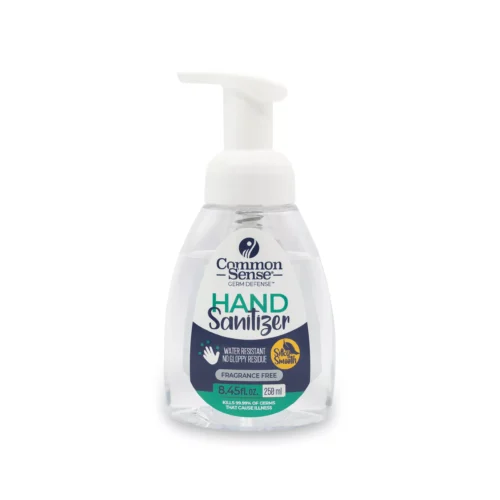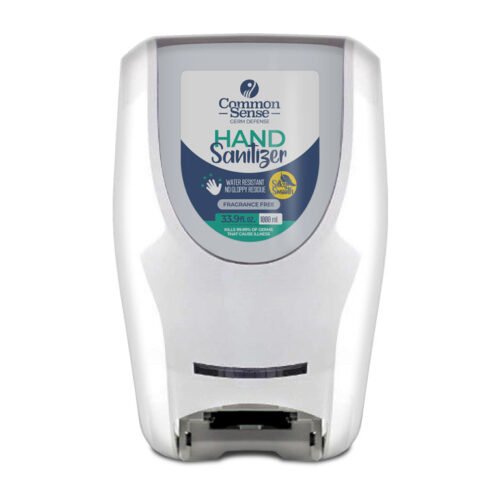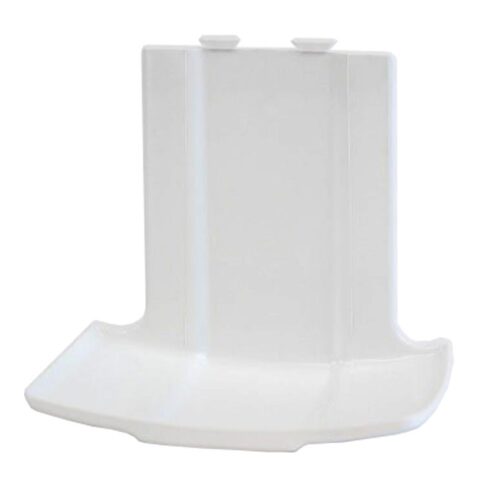Hand sanitizer is a popular item during the winter season. Many people are curious if hand sanitizer will freeze in cold weather conditions. In this article, we will explore the effects of cold weather on hand sanitizers.
What Is Hand Sanitizer Made Of?
Hand sanitizer is a type of antiseptic liquid made with enough alcohol to kill germs and bacteria. It may be used as a substitute for hand washing with soap and water when soap and running water are unavailable or impractical. Hand sanitizers come in many different forms, including spray, gel, foam, or wipes.
Common Sense hand sanitizer goes beyond typical skin sanitizing products because it moisturizes your hands without being a heavy or scented lotion. In fact, it has no fragrance at all. Common Sense hand sanitizer also contains our persistent technology that result in hours of germ protection from just one application.
All alcohol will freeze when the temperature is low enough, but alcohol with a proof more than 50 will not solidify in a regular freezer.
The Centers for Disease Control and Prevention (CDC) advises using an alcohol-based hand sanitizer with at least 60% alcohol if soap and water are not readily available.

“Proof” is simply two times the volume of alcohol. So, for example, vodka with an ABV of 40% is 80 proof, while vodka with an ABV of 45% is 90 proof. So when hand sanitizer is 62% alcohol, it’s actually 124 proof.
When used alone, the word “alcohol” on hand sanitizer labels indicates that ethanol is assumed to be present (also known as ethyl alcohol). Only ethanol (ethyl alcohol) or isopropyl alcohol may be used as active components in alcohol-based hand sanitizers (isopropanol or 2-propanol).
Does Hand Sanitizer Freeze In Cold Weather Conditions?
Have you ever thought that cold weather could potentially ruin hand sanitizer? Many people keep a bottle of sanitizer in their car to apply before they hit the drive through or after they come out of a busy store. Once the weather get’s cold, is it ok to leave the sanitizer in the car when the temperature drops below freezing?
In some cases, some formulations of hand sanitizers will start to freeze at around -35 degrees Fahrenheit (-37 degrees Celsius). More often, it will need to get down to -50 degrees Fahrenheit to freeze hand sanitizer. However, other factors such as the composition of the product, the packaging, and how it is exposed to cold temperatures can also affect whether or not hand sanitizer will freeze in certain conditions.
How To Prevent Your Hand Sanitizer From Freezing
If you are concerned about your hand sanitizer freezing in cold weather, or if you’ve altered the formula or it’s been diluted, there are several steps you can take to help minimize this risk.
First, it is important to keep your sanitizer out of direct sunlight or other sources of heat. For example, if you store your sanitizer inside a car for frequent use, be sure to keep it in the trunk or a closed compartment instead of on the dashboard where it may be exposed to sunlight. Keep your sanitizer with you by carrying it in a purse or attaching it to your keychain. Many brands produce convenient pocket sized dispensers so you can keep it with you. Additionally, you could store your hand sanitizer indoors during the winter season if possible.
Effects Of Freezing Hand Sanitizers
If your hand sanitizer does freeze, there may be some negative effects. For example, when hand sanitizer freezes, it can become too thick to easily apply to the skin. In addition, freezing can change the chemical composition of the product and potentially alter its effectiveness or safety. Therefore, it is best to protect your hand sanitizer from freezing conditions whenever possible.
Sanitizing Hands In The Winter Season
Winter is a time when many people struggle with staying healthy. Cold weather and low humidity levels can create prime conditions for the spread of germs and viruses, leading to an increase in sicknesses such as colds and the flu. To help protect themselves from these unwanted illnesses, many people turn to hand sanitizer during the winter season.

Remember that though Common Sense hand sanitizer kills 99.9% of germs that cause illness when you apply it, there are some pathogens that aren’t killed by any sanitizing product. Whenever possible, use soap and water to wash your hands and use hand sanitizer when soap and water is not available.
Will you get frozen hand sanitizer if you leave it outside in the cold?
Alcohol is a key component in hand sanitizers so the freezing point and its behavior under varying conditions is information you need to determine the answer to this question. Our findings might have surprised you! Hand sanitizers can indeed freeze, but only under incredibly harsh conditions that you’re unlikely to encounter during daily life. Your hand sanitizer should remain usable all year round.
The freezing point of pure alcohol is much lower than that of water. This means that alcohol freeze occurs at a much colder temperature, making it unlikely for your sanitizer, which contains a significant amount of alcohol, to solidify. The warmer the freezing point, the easier it is for a substance to freeze. However, alcohol’s lower freezing point means it remains liquid even when water freezes.
While the freezing points of different substances vary, most hand sanitizers won’t freeze under typical conditions due to the lower freezing point of alcohol. So rest assured, you should be able to carry your hand sanitizer with you throughout the seasons without worry!
Have You Used Your Common Sense Today?
Frequently Asked Questions
Q: What to do if isopropyl alcohol based hand sanitizer freezes in your car?
A: If isopropyl alcohol based hand sanitizer freezes in your car, the best thing to do is bring it inside and let it thaw. Once it has thawed, shake the bottle well and it should be ready to use. If you notice any crystals or solid chunks in the sanitizer, carefully pour it into another container and discard the solid pieces. You can then use a spoon or fork to stir the sanitizer until it is liquid again.
Q: Is ethyl alcohol based hand sanitizer good for killing germs?
A: Yes. Ethyl alcohol-based hand sanitizers are great for killing germs. They work by quickly drying out the top layer of the pathogen and causing the death of any bacteria or viruses on the skin surface. This makes them a great choice for quickly disinfecting your hands when soap and water aren’t available.




